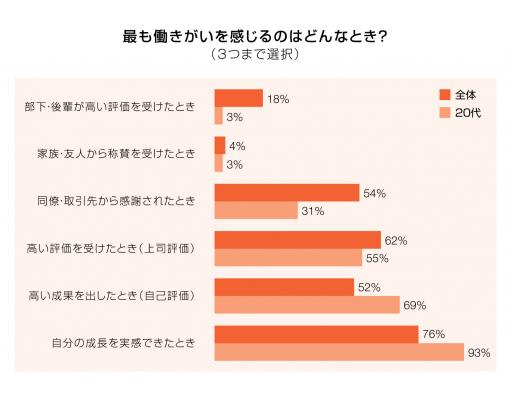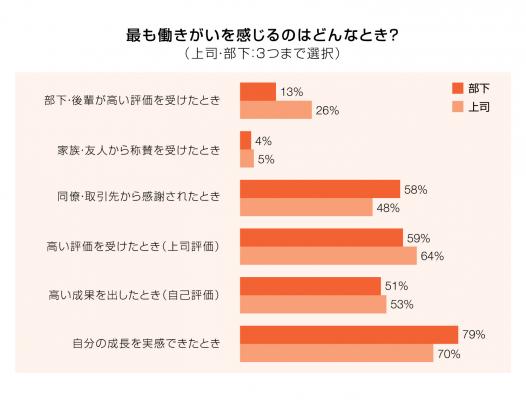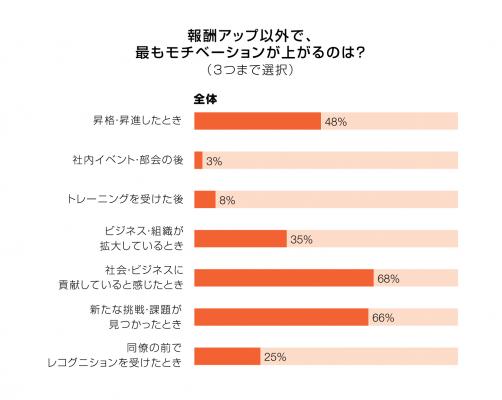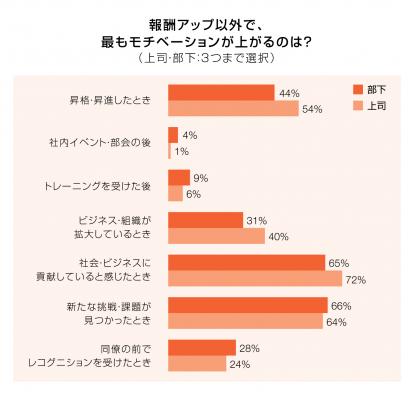When do English speaking workers with specialized skills feel the most rewarded in their work? Robert Walters Japan, a recruiting company that focuses on global talent, released a survey that attempted to answer this question. The survey results were published on April 9th.
According to the survey results, both superiors and subordinates felt the most sense of reward “when I feel myself grow in our work” (76%). Also, “when I get a great evaluation (from superiors)” came in at 62%. Following that, “when I receive gratitude from co-workers and suppliers” was 54%.
When narrowed down to respondents in their 20s, 93% of respondents answered “when I feel myself grow in my work.” Also, “when I achieve excellent results (according to self-evaluation)” was at 69%. This was 14 points above the second place answer for the survey in general, “when I get a great evaluation (from superiors).”Workers in their 20s have a high drive to improve themselves, and care more about performing well at work and conforming to their own desired values, rather than receiving high evaluations from their superiors.

Chart above: When do you feel the most rewarded at work?(All, 20s – up to 3 choices)

Chart above: When do you feel the most rewarded at work?(Superiors, subordinates – up to 3 choices)
The survey also listed some reasons for feeling motivated at work rather than salary raises. The first place answer was “when we feel we contribute to business or society” at 68%. “When we discover new challenges or problems” came in at 2nd place at 66%. “When we get a promotion or raise in status” was in 3rd place at 48%. Furthermore, superiors and subordinates answered differently when it came to work duties. For superiors who responded, “contributing to society or business” was 1st place, whereas for subordinates, “new challenges and problems” came in 1st. 54% of the superiors group also answered that “promotions and raises in status” were important. It was a clear difference from the subordinates group – superiors are more motivated by differences in position and rank.
There were other factors that affected motivation. Respondents didn’t expect training, company events, or sub-committees to immediately raise their motivation. However, the survey results made it clear that awards and other forms of recognition had a set effect on raising motivation.

Chart above: Besides salary raises, what gives you the most motivation?(All – up to 3 choices)

Chart above: Besides salary raises, what gives you the most motivation?(Superiors, subordinates – up to 3 choices)
The survey was conducted from March 5th to March 12th, 2019. It was aimed at 554 Japanese permanent employees of foreign companies, as well as domestic companies that are proceeding with global development.



















